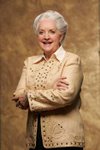When I first started talking about my spiritual seeking three decades ago, it wasn’t always easy. A few friends and family members would ask me questions about my non-traditional ideas, such as by changing our thoughts we can change our life. They would respond by laughing, raising their arms above their heads, moving them up and down and wiggling their fingers while chanting “woo-woo.”
What those people didn’t know was that I had been on a spiritual quest since I was ten years old, and would not be deterred. Since childhood, I have believed in a God that knows only love and wants us to learn to create lives that celebrate the gift of life. I also believed that the eternal and sublime energy, which we call God, is in everyone and everything in the universe. Like a wave is part of the ocean, but not all of it, we share the attributes of God, and as such we have the innate ability to design fulfilling, joyous and abundant lives.
After a number of inquiries into different traditional religious denominations, I realized that I didn’t fit. I wasn’t willing to accept what others had decided was the truth if it didn’t resonate within my own heart and mind. I was also seeking my own personal experience with God, and this brought some interesting reactions.
I innocently asked several friends who were longtime church members how to have a personal connection with God, assuming they knew. They averted their eyes and changed the subject. I also learned that no matter how brilliant and articulate a church leader was in the pulpit, it didn’t mean they had a personal relationship with God or were comfortable talking about it with others. Some pastors simply tossed back a directive “Join the church!” as they made a hasty retreat.
Years later I became aware that some traditional religious denominations focus on developing a personal connection with God. I just didn’t happen on one that worked for me.
I didn’t realize it at the time, but my heightened spiritual exploration in the 1970s coincided with the continuing high-energy of the 1960s, which had resulted in millions of Americans seeking new ways of approaching life and spirituality. To the general public and the media, there was so much that was new that even if there had been an interest in checking it all out, it would have been challenging to separate what was a fleeting fad from what would later prove worthwhile. It was much easier to label and lump anything that was new and different into a category that could easily be pooh-poohed and ignored.
History confirms many instances when individuals were severely criticized or punished for bringing to the world new ideas that shook the traditional mind-set and threatened the status quo. If it hadn’t been for some of them, we would still think the Earth was flat, that washing bacteria off our hands to avoid disease and death was bogus and that the sun revolved around the Earth.
One of the recent issues that caused a commotion was the widespread practice of channeling messages from the dead. While this was unsettling for many at the time, a true benefit has been evident for more than a decade. Today there are unknown numbers of individuals who have contact with the spirit-world, and some of them have bestselling books and television shows. The good news is that these psychics are helping to release our universal fear of death and dying, which frees us to live fuller lives and to die better deaths.
I believe it has always been wise to keep an open mind and to be discerning. It is even more vital in our world today. The emergence of new ideas is what moves humanity forward on the path to conscious awareness. In staying open, we learn to embrace change as a fact of life and to respect and value diversity of thoughts and beliefs. This is not an option—it is a requirement to save our planet and ourselves.
_________________________________
Copyright 2008 by Fern Stewart Welch
The author’s book THE HEART KNOWS THE WAY—How to Follow Your Heart to a Conscious Connection with the Divine Spirit Within is available at Amazon.com and other online booksellers, as well as through major bookstores such as Barnes & Noble and Borders.
Subscribe to:
Post Comments (Atom)

No comments:
Post a Comment